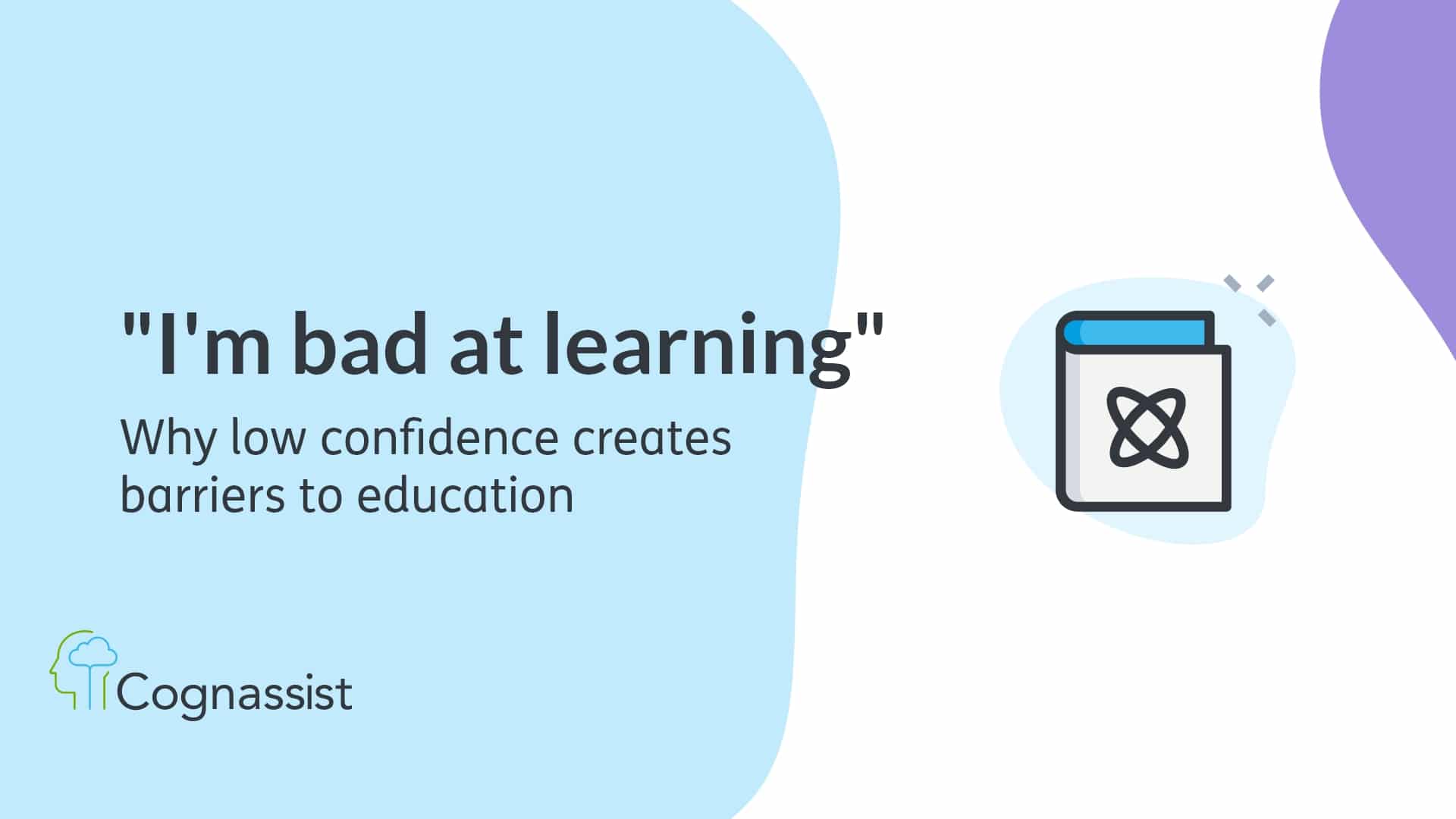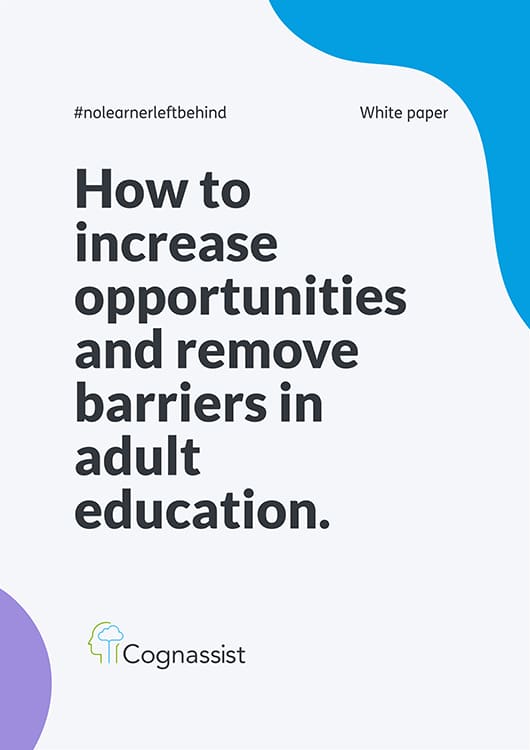
“I’m bad at learning”: how to build confidence in adult learners
Read more about why ‘bad learners’ is a misnomer and how you can support those who learn differently.
Adults face a range of barriers to education based on their circumstances, previous experience, and disposition. Our life experiences influence these perceived barriers.
- Research has found that, “Negative and unfulfilling past experiences at school are linked to low educational self-esteem [.]” (Kantar Public, Learning & Work Inst., 2018)
Low confidence from previous experiences can lead people to think they’re bad at learning, but this doesn’t reflect our understanding of how the brain works.
We are all diverse, which means we all think and learn differently.
So, we can’t rely on the historical one-size-fits-all approach to learning, which excludes many learners from succeeding.
Adult education providers that don’t adapt their learning environments to support people with different needs risk higher dropout rates from unsatisfied learners.
When we look at the decisions of adult learners, it’s clear that, “Adults need supportive learning
contexts (including supportive tutors, peers and employers) to maintain their commitment to education.” (Kantar Public, Learning & Work Inst., 2018)
The last thing providers want to do is perpetuate the learner’s misconceptions about their learning abilities, stopping them from progressing and trapping adults in lower-income jobs.
Support provisions for adult learners need to build confidence from day one and provide learners with the skills to achieve as they progress through their course. It’s important to accurately assess each learner’s needs and create clear starting points from which we can build.
Take action to remove barriers to education:
- “Success during initial assessments and an experience of settling into a course could both create greater positivity towards learning, and an identity as a learner capable of achieving the qualification[.]” (Kantar Public, Learning & Work Inst., 2018)
Increasing accessibility to learning will motivate more adults to seek out opportunities, “For example, an adult with low self-confidence might be more motivated to explore distance learning[.]” (Kantar Public, Learning & Work Inst., 2018)
Providers need to ensure that learners maintain engagement and don’t lose out on support if they choose to study remotely.
Providing adult learners with a flexible learning environment that supports their individual needs can have a considerable impact on the learner’s journey and enjoyment of their course.
Learners can be more confident in themselves and their ability to learn. Reasonable adjustments allow organisations to provide a valid, reliable and manageable approach to supporting learners with additional needs.
The ESFA has set out clear guidelines on how the AEB (Adult Education Budget) can be used to, “meet the cost of putting in place a reasonable adjustment, as set out in the Equality Act 2010, for learners who have an identified learning difficulty or disability, to achieve their learning goal.” (ESFA, 2018)
Providers should work collaboratively with learners to determine the appropriate reasonable adjustments, which empowers learners to participate in decisions about their learning.
The Equality Act 2010 sets a clear precedent.
Adult education providers have a responsibility to support their LDD learners through reasonable adjustments to help level the playing field.
We must guarantee that learners with additional support requirements are not at a significant disadvantage to their peers and feel confident in meeting the challenges of their course.
No one is bad at learning.

Helen
Content Manager
You’ll learn how to:
- Help your adult learners thrive
- Identify and overcome barriers to learning for adults
- Drive change quickly


